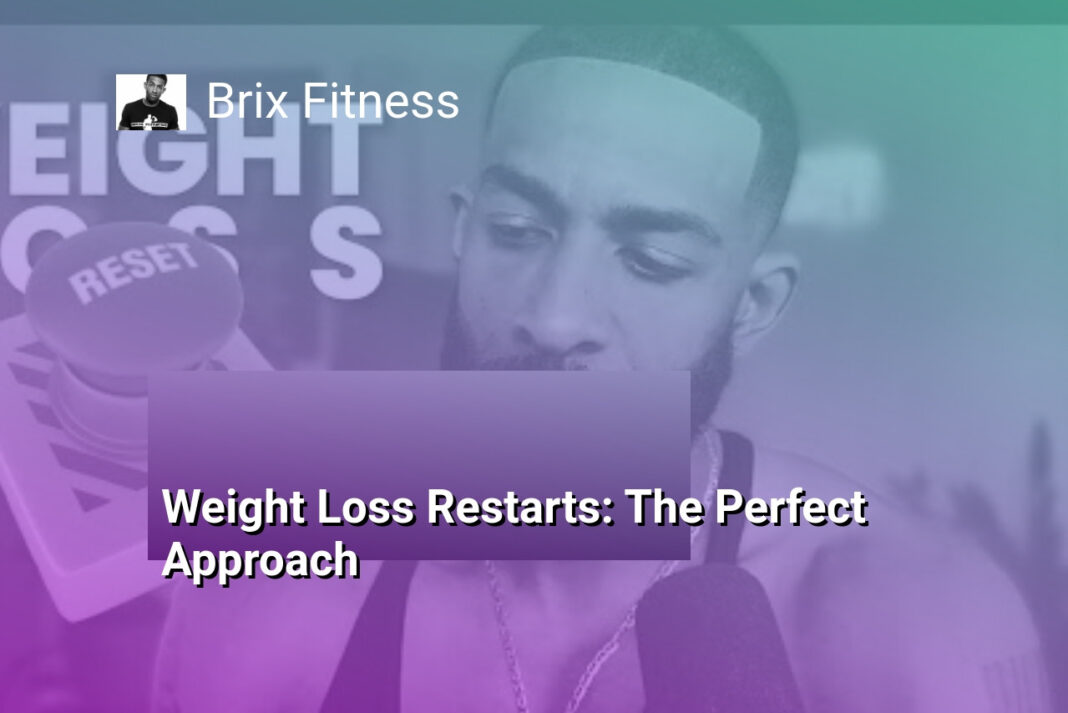The Bottom Line:
Here is a summary of the main points in the requested format:
- Reframe your goal from just weight loss to overall wellness and happiness, making weight loss a byproduct rather than the sole focus. This allows you to appreciate non-scale victories and build momentum through multiple wins.
- Reflect on past failures and identify what negatively impacted your mental health, such as overly restrictive diets or unsustainable workout routines. Use this information to strategize a different, more balanced approach.
- Expand your definition of exercise beyond traditional gym workouts. Incorporate enjoyable forms of movement like nature walks, prioritizing consistency over intensity. This contributes to both physical and mental well-being.
- Incorporate mindfulness practices into your daily routine, starting with brief sessions and gradually increasing duration. Mindfulness meditation can help build emotional resilience and provide a healthy outlet for processing emotions.
- Build a supportive network by surrounding yourself with individuals who are also pursuing personal growth. Seek out communities, hire a coach, or find accountability partners to foster a positive environment and counteract potential negative influences.
Reframe Your Goal: Focus on Overall Wellness, Not Just Weight Loss
Shift Your Mindset: Embrace Overall Wellness
When you switch your goal from purely weight loss to overall wellness, it changes the definition of success. Instead of being a slave to the scale, focus on other wins like having more energy, feeling good about yourself, getting stronger, sleeping better, and improving your emotional health. These non-scale victories are often ignored when weight loss is the sole focus, but they are crucial for building momentum and fueling your journey. By reframing your goal to overall wellness, you give value to behaviors beyond just losing weight, which will motivate you to continue them consistently, regardless of what the scale shows.
Reflect on Past Struggles and Strategize
Take time to reflect on your past weight loss attempts and identify what affected your mental health. Did you diet too aggressively, cutting out foods you loved? Did you eat a monotonous, bland diet that wasn’t sustainable? Were you trying to work out six days a week doing exercises you didn’t enjoy? Write down these experiences and use this information to strategize a different approach. Now that your focus is on overall wellness, every time you exercise, meditate, journal, or take deep breaths, you are contributing to your mental and physical well-being, whether the scale moves or not. A healthy meal nourishes your body and makes you a better version of yourself, regardless of weight loss.
Find Joy in Movement and Mindfulness
Expand your definition of exercise beyond the traditional gym routine. Find ways to move your body consistently that bring you joy, like taking a walk in nature. Consistency is more important than intensity. Incorporate mindfulness practices into your daily routine, starting with just a few minutes of intentional self-reflection. Research the science of mindfulness meditation and how it can help build emotional resilience and process emotions in a healthy way. Surround yourself with a supportive network of people who are also pursuing better mental, physical, emotional, and spiritual health. Be kind to yourself, practice self-compassion, patience, and give yourself grace throughout this journey. Change can be uncomfortable, but by controlling negative self-talk and practicing mindfulness, you can navigate the challenges and find lasting success in your pursuit of overall wellness.
Reflect on Past Challenges and Strategize a New Approach
Reflect on Your Past Weight Loss Attempts
Take some time to sit down and really think about your previous attempts at losing weight. What were the factors that led to you feeling mentally drained and unhappy? Perhaps you were too restrictive with your diet, cutting out all the foods you enjoyed and leaving yourself feeling deprived. Maybe you were trying to exercise too much, doing workouts you didn’t enjoy and pushing yourself to the point of exhaustion.
Write down these experiences and use them as valuable information to inform your new approach. This time, instead of solely focusing on the number on the scale, prioritize your overall well-being. Recognize that every healthy meal you eat and every workout you do is contributing to your health, regardless of whether it leads to immediate weight loss.
Find Joy in Movement
Exercise doesn’t have to mean grueling gym sessions or lifting heavy weights. Look for ways to incorporate movement into your life that you genuinely enjoy. This could be taking a scenic walk in nature, dancing to your favorite music, or trying out a new yoga class. The key is to find activities that bring you joy and that you look forward to doing.
Remember, consistency is more important than intensity. Aim to move your body regularly in a way that feels good to you, rather than pushing yourself to the point of burnout. This sustainable approach will help you maintain your exercise habit in the long run.
Cultivate Mindfulness and Self-Compassion
Mindfulness practices, such as meditation and journaling, can be incredibly powerful tools for improving your mental and emotional well-being. Start small, with just a few minutes of intentional self-reflection each day. As you become more comfortable with the practice, you can gradually increase the duration.
Research has shown that mindfulness can help build emotional resilience and provide a healthy outlet for processing difficult emotions. Rather than turning to food for comfort, you’ll have a tool to help you navigate challenging feelings in a more constructive way.
In addition to mindfulness, make a conscious effort to be kind and compassionate towards yourself. Change is hard, and it’s normal to experience setbacks and challenges along the way. Instead of berating yourself for any missteps, treat yourself with the same understanding and patience you would offer a good friend. Celebrate your successes, no matter how small, and use any setbacks as opportunities to learn and grow.
Incorporate Mindfulness Practices for Emotional Resilience
Cultivate a Daily Mindfulness Practice
Incorporating mindfulness practices into your daily routine can be a powerful tool for building emotional resilience and supporting your weight loss journey. Start by setting aside just a few minutes each day for intentional self-reflection. This can be as simple as taking a few deep breaths and checking in with your emotions and thoughts. As you become more comfortable with the practice, gradually increase the duration of your mindfulness sessions, aiming for around 20 minutes per day.
Research has shown that regular mindfulness meditation can help improve emotional regulation, reduce stress, and enhance overall well-being. By developing this habit, you’ll be better equipped to process emotions that may have previously triggered overeating or other unhealthy coping mechanisms. Remember, consistency is key when it comes to reaping the benefits of mindfulness.
Explore Various Mindfulness Techniques
There are numerous mindfulness techniques you can explore to find what resonates with you. Some popular options include:
1. Guided meditations: Listen to pre-recorded meditations that walk you through the process of focusing on your breath, body sensations, or a specific theme.
2. Body scans: Systematically bring your attention to different parts of your body, observing any sensations without judgment.
3. Mindful movement: Engage in gentle yoga, tai chi, or qigong, focusing on the sensations and breath as you move.
4. Journaling: Write down your thoughts and feelings to gain clarity and release pent-up emotions.
Experiment with different techniques and be open to trying new approaches. The key is to find a practice that you enjoy and can sustain long-term.
Integrate Mindfulness into Daily Life
In addition to dedicated mindfulness sessions, look for opportunities to bring mindfulness into your everyday activities. For example, practice mindful eating by paying attention to the flavors, textures, and sensations of your food. When walking, focus on the feeling of your feet connecting with the ground and the rhythm of your breath.
By integrating mindfulness into various aspects of your life, you’ll cultivate a greater sense of presence and awareness. This heightened awareness can help you make more conscious choices aligned with your health and well-being goals. Remember, the journey to lasting weight loss success is as much about nurturing your mind as it is about caring for your body. By prioritizing mindfulness practices, you’ll be better equipped to navigate the challenges and setbacks that may arise along the way, ultimately leading to a happier, healthier version of yourself.
Build a Supportive Network and Seek Accountability
Surround Yourself with Positive Influences
Building a supportive network is crucial for long-term success in your weight loss journey. Seek out friends, family members, or even online communities who share your goals and values. Surrounding yourself with people who encourage and inspire you can make a significant difference in your mindset and motivation. Join a local fitness group, attend healthy cooking classes, or participate in online forums where you can connect with like-minded individuals. Having a strong support system will help you stay accountable and provide a source of encouragement during challenging times.
Find an Accountability Partner or Coach
Consider finding an accountability partner or hiring a coach to help you stay on track. An accountability partner can be a friend, family member, or someone from your support network who checks in with you regularly to discuss your progress, challenges, and successes. Having someone to report to can help you stay committed to your goals and provide an extra layer of motivation. Alternatively, investing in a professional coach can be incredibly beneficial. A coach can provide personalized guidance, support, and expertise to help you navigate the ups and downs of your weight loss journey.
Celebrate Your Progress and Be Kind to Yourself
As you work towards your goals, it’s essential to celebrate your progress along the way. Acknowledge your achievements, no matter how small they may seem. Recognize the positive changes you’ve made in your lifestyle, such as consistently exercising, making healthier food choices, or improving your sleep habits. Celebrating your progress will help you maintain a positive mindset and reinforce the idea that your efforts are paying off. Additionally, be kind to yourself throughout your journey. Remember that setbacks and challenges are a normal part of the process. Instead of being self-critical, practice self-compassion and treat yourself with the same kindness and understanding you would extend to a friend. Embrace the idea that progress is not always linear and that every step forward, no matter how small, is a step in the right direction.
Practice Self-Compassion, Patience, and Grace
Here is the content for the section titled “Practice Self-Compassion, Patience, and Grace”:
Reframe Negative Thoughts and Emotions
As you embark on this new phase of your weight loss journey, it’s crucial to be intentional about being kind to yourself. Change can be uncomfortable and unnatural, and our nervous system often registers change as a threat. When you experience negative thoughts or resistance, recognize that these feelings are normal. Practice mindfulness daily to help process your emotions and build emotional resilience. Consider starting a journaling habit where you write down your thoughts and feelings. This can be a great outlet to release these emotions and clear your mind.
Surround Yourself with Support
Building a supportive network is essential for maintaining a positive mindset and staying on track. Seek out accountability partners, hire a coach, or join an online community of individuals who share your goals. Surround yourself with people who are pursuing better mental, physical, emotional, and spiritual well-being. Make friends with fit, emotionally sound, and happy individuals, and spend as much time with them as possible. Having a strong support system can help you navigate the challenges of your weight loss journey and celebrate your successes along the way.
Focus on Progress, Not Perfection
Remember that your weight loss journey is not about achieving perfection but rather making consistent progress towards a healthier, happier version of yourself. Celebrate the small victories and non-scale wins, such as increased energy levels, better sleep, and improved emotional well-being. These achievements are just as valuable as the number on the scale. Be patient with yourself and understand that lasting change takes time. Embrace the process and trust that by focusing on overall wellness, you will ultimately reach your weight loss goals while maintaining a positive mindset and a healthy relationship with yourself.





